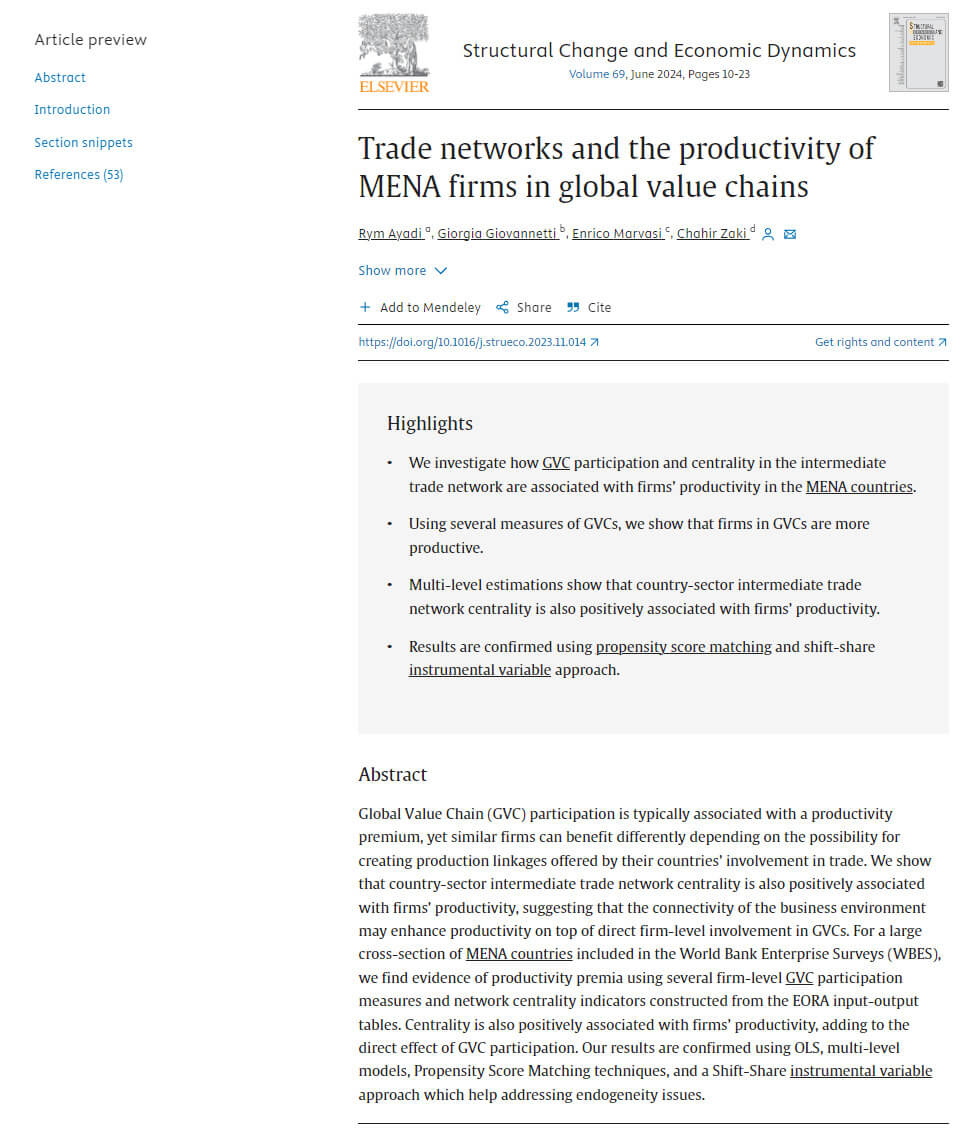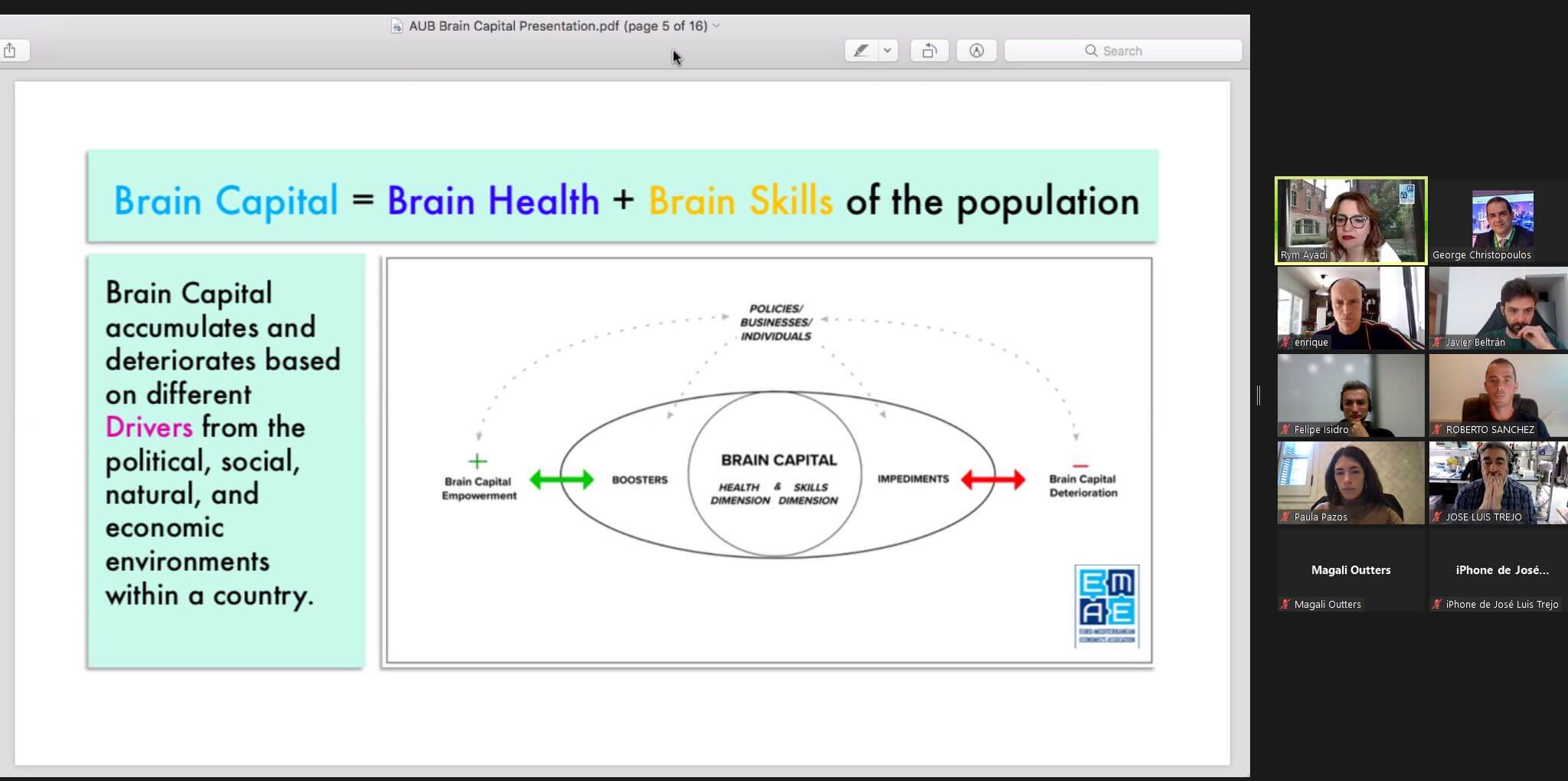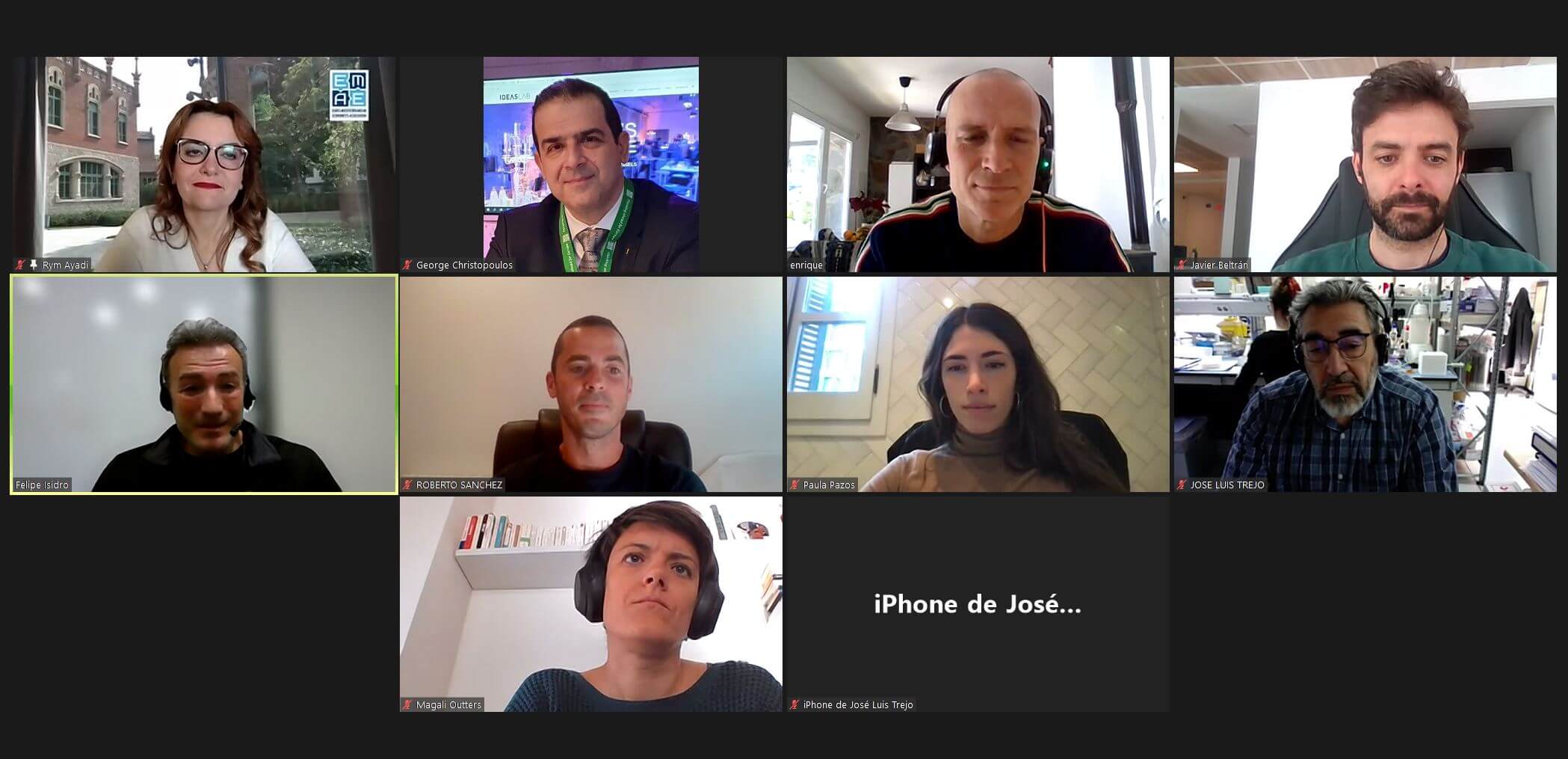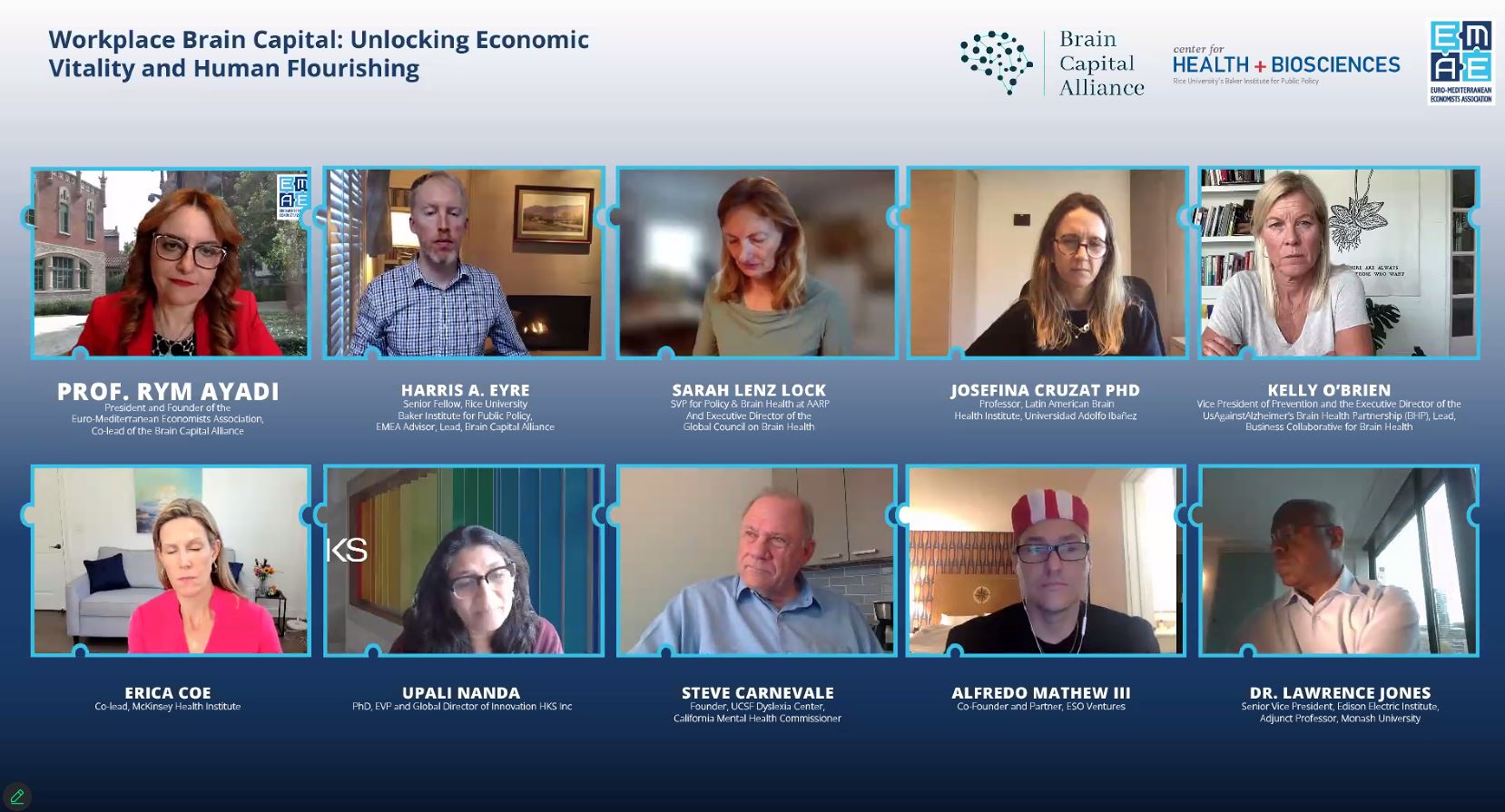On 20 February 2024, EMEA, one of the founding organisations of the Brain Capital Alliance, organised an online expert meeting on “Challenges and Opportunities to Increase Adherence to Physical Exercise and Natural Movement in the Population”.
The Brain Capital framework promoted by EMEA offers a new approach to mental health, human capital, and the economy. It delves into how the economy works and interacts bidirectionally with the human brain. The purpose of the online meeting was to facilitate an initial conversation, based both on professional and personal experience, among experts and researchers in various fields and approaches to exercise and physical movement and their impact on the physical and mental health of human beings.
Prof. Rym Ayadi, EMEA President and co-founder of the Brain Capital Alliance presented the Brain Capital Initiative and highlighted:
“Physical exercise is not just a pathway to a healthier body but a cornerstone for building a robust brain capital, enhancing cognitive functions, emotional resilience, and social connectivity. By integrating regular physical activity into our daily lives, we unlock the potential to elevate our quality of life, fostering a society where mental acuity, emotional well-being, and collective prosperity flourish.”
Participants included:
- Enrique de Villamore – Independent Consultant
- Magali Outters – International consultant, EMEA Expert
- Jose Luis Trejo Perez – Senior Scientist at Instituto Cajal
- Felipe Isidro – Professor of Physical Education, Secretary General – International Institute of Physical Exercise and Health
- Javier Beltran Lezaun – Founder of Rockfit
In the context of the Brain Capital Program, the key role of physical exercise and activity in mental health is recognized, both for the prevention and treatment of mental illnesses and for improving brain neuroplasticity and lifelong learning. Consequently, EMEA is reaching out to relevant experts interested in joining a multidisciplinary working group that addresses, based on research from various disciplines such as neuroscience, evolutionary science, physical education, biology, and psychology, the challenge of adherence to physical exercise in the population.






